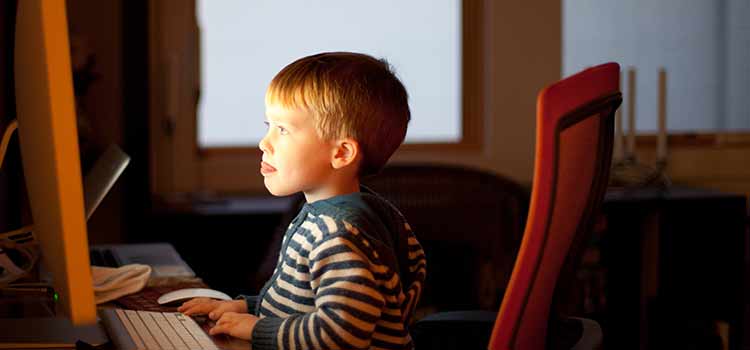Social media is like an infinite digital slot machine, intentionally engineered to encourage mindless consumption. By using a variety of psychological tricks and mind games, social media has perfected the art of trapping its customers in an endless cycle.
The website TechForGood.net explains that algorithms determine what you’re interested in by analyzing your behaviors and habits. They monitor things like your likes, what you share, what you comment on, what comments you like, how much time you spend on particular content niches, and even when you pause a video or rewatch it.
Hidden Cost of Steadfast Content Consumption
At first glance, our digital lives feel convenient and can even give you a sense of power. We have limitless access to instantaneous information. Short-form media releases dopamine in the brain, coupled with the fact that it can provoke strong feelings such as joy, happiness, confusion, and shock, it’s really no wonder that this digital hamster wheel of media has people addicted.
According to the Pew Research Center, 69% of U.S. adults and 81% of teens use social media, exposing the majority of the population to its risks. Research from the National Institutes of Health, conducted in 2023, shows that sleep problems were identified in people who excessively use social media, with 19.9% of people reporting sleep issues. People reported variations in sleep patterns, some were short while others were long; for example, 15.6% of people had less than 5 hours of rest, and 21.6% of people experienced more than 9 hours. These irregularities pose a significant risk to those who overindulge in content.
Social media stress can trigger physical symptoms like headaches and nausea, particularly in young women. While young men often express aggression physically, young women tend to engage in relational aggression, such as exclusion and spreading hurtful comments. Social media, through its use of filters and editing, creates a harmful false illusion of beauty, which has led to increased cosmetic surgery requests among adults aiming to match their filtered images. Moreover, the physical health outcome of excessive screen time is tied to weight gain and a higher risk of heart disease-related conditions, especially in youth, including high blood pressure and cholesterol. According to the BMC Public Health website, extreme smartphone use is directly connected to mental health problems, including anxiety and depression. It is also tied to issues with attention span and impulse control. Excessive content consumption has even been proven to change brain structure.
The Grip of the Algorithm
The fear of missing out, or FOMO, happens when we see the perfect lives and experiences that other people share online. Humans have an instinctive feeling for social connection and belonging, and when people feel they lack these types of relationships, it can lead a person to post and comment on things to get likes and feel seen and noticed. The more a person continues this bad habit, the more the algorithm analyzes the individual’s decisions, improving itself, which can lead to breaking free from this cycle becoming more difficult.
The Case for a Digital Fast
This is where the idea of digital fasting comes in. A digital detox is about using technology with good intent and not just mindlessly consuming content.
Think of all the time you spent doomscrolling or mindfully browsing the internet. What you could have done with those hours, maybe you could have focused more on real-life relationships, hobbies, or anything in your life that you feel truly matters? A detox rips away our illusion of independence, offering an opportunity to self-reflect and better our habits.
Instead of quitting technology “cold turkey,” Newport Academy, a company that owns and operates multiple residential mental health treatment centers, recommends focusing on creating healthy boundaries to prevent negative effects. Take it a step at a time. Simple precautions like turning off unnecessary notifications, monitoring screen time, planning tech-free family activities, and designating regular unplugged times for yourself during the day — try an hour after coming home from work or school. In addition to this, attempt to make certain spaces in your life tech-free. A specific example could be recommending that your family put down their phones or place them in a designated space, like a basket, and have a device-free dinner, encouraging your family to develop their connection. A digital detox is about bettering yourself and your perspective; it’s not about being flawless but being more mindful in your day-to-day life and being able to live in the present moment.
Micah Hosteen, a tenth grader at Coronado High School, recognizes the benefits of putting down his phone and believes that every second spent “doomscrolling” is a wasted opportunity. He monitors his phone usage, and when he feels it is time for a break, he socializes during bus rides to school, plays basketball with friends, and takes walks in his neighborhood. He also helps out around the house, saying that stepping away from his phone makes him feel better.
Cory Huber, a coach and teacher at the same school, shares that too much screen time leaves him feeling as if he’s losing his human connection. He says that while it’s easy to get sucked into “doomscrolling,” afterward he realizes he could have used that time more productively. To prevent the harsh effects of “doomscrolling,” he doesn’t carry his phone at work and encourages dinners to be a phone-free zone. His family also takes turns walking the dog every day.
Cory Huber and Micah Hosteen manage their tech time in a way that shows that anyone, no matter their age or life experience, can get better at this skill.
A better life Beyond the Screen
Technology is not inherently bad: it enables us to connect, it educates us, it even encourages teamwork and collaboration, and even offers more job opportunities. However, you must choose if you want to use technology as a tool (which it was intended to be) or become a victim of the power and influence technology can wield.
The decision on whether or not to take a digital detox is a personal decision that can only be made by the individual themselves; however, regular research has steadily proven the effect that committing to a digital detox has significant positive benefits on your mental and physical health. Therefore, I encourage you to take the time to consider if setting down your digital device could lead to you having a more balanced and fulfilling life.







